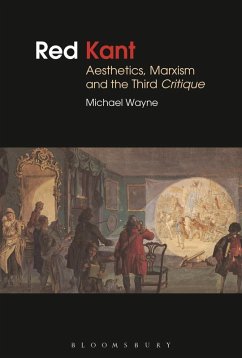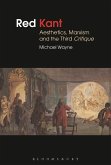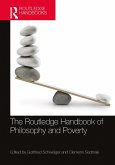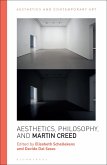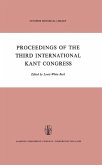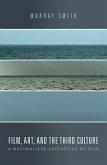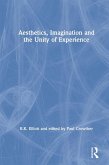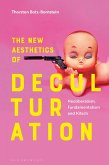Is Kant really the 'bourgeois' philosopher that his advocates and opponents take him to be?
In this bold and original re-thinking of Kant, Michael Wayne argues that with his aesthetic turn in the Third Critique, Kant broke significantly from the problematic philosophical structure of the Critique of Pure Reason. Through his philosophy of the aesthetic Kant begins to circumnavigate the dualities in his thought. In so doing he shows us today how the aesthetic is a powerful means for imagining our way past the apparent universality of contemporary capitalism.
Here is an unfamiliar Kant: his concepts of beauty and the sublime are reinterpreted as attempts to socialise the aesthetic while Wayne reconstructs the usually hidden genealogy between Kant and important Marxist concepts such as totality, dialectics, mediation and even production. In materialising Kant's philosophy, this book simultaneously offers a Marxist defence of creativity and imagination grounded in our power to think metaphorically and in Kant's concept of reflective judgment. Wayne also critiques aspects of Marxist cultural theory that have not accorded the aesthetic the relative autonomy and specificity which it is due.
Discussing such thinkers as Adorno, Bourdieu, Colletti, Eagleton, Lukács, Ranciére and others, Red Kant: Aesthetics, Marxism and the Third Critique presents a new reading of Kant's Third Critique that challenges Marxist and mainstream assessments of Kant alike.
In this bold and original re-thinking of Kant, Michael Wayne argues that with his aesthetic turn in the Third Critique, Kant broke significantly from the problematic philosophical structure of the Critique of Pure Reason. Through his philosophy of the aesthetic Kant begins to circumnavigate the dualities in his thought. In so doing he shows us today how the aesthetic is a powerful means for imagining our way past the apparent universality of contemporary capitalism.
Here is an unfamiliar Kant: his concepts of beauty and the sublime are reinterpreted as attempts to socialise the aesthetic while Wayne reconstructs the usually hidden genealogy between Kant and important Marxist concepts such as totality, dialectics, mediation and even production. In materialising Kant's philosophy, this book simultaneously offers a Marxist defence of creativity and imagination grounded in our power to think metaphorically and in Kant's concept of reflective judgment. Wayne also critiques aspects of Marxist cultural theory that have not accorded the aesthetic the relative autonomy and specificity which it is due.
Discussing such thinkers as Adorno, Bourdieu, Colletti, Eagleton, Lukács, Ranciére and others, Red Kant: Aesthetics, Marxism and the Third Critique presents a new reading of Kant's Third Critique that challenges Marxist and mainstream assessments of Kant alike.

